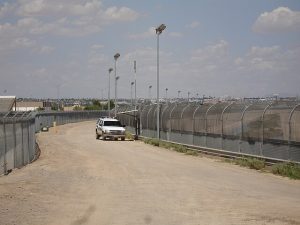Iran confirms arrest of Italian journalist
3 min readIranian authorities have confirmed the arrest of Italian journalist Cecilia Sala, who was detained in Tehran on 19 December. Sala, 29, a well-known journalist and host of a popular podcast on news and foreign affairs, had been in the country for a reporting trip and was set to return to Italy the following day. She is now reportedly being held in solitary confinement at Tehran’s notorious Evin prison, with her detention said to be linked to a violation of Iranian law, though the exact charges remain unclear.
Her arrest comes amid heightened tensions between Iran and the West, particularly following the 16 December arrest of Mohammad Abedini, an Iranian national, in Milan. Abedini is accused of supplying electronic parts for drones to the Islamic Revolutionary Guards Corps (IRGC), which were allegedly used in attacks that led to the deaths of three U.S. soldiers. A U.S. State Department spokesperson suggested that Sala’s arrest might be part of a broader effort by Iran to use her as “political leverage” in response to Abedini’s detention. While neither the Italian nor Iranian governments have confirmed a direct connection between Sala and Abedini, the Iranian Foreign Ministry summoned a senior Italian diplomat on 21 December to discuss the arrest.
In Italy, the case has sparked outrage, with Foreign Minister Antonio Tajani describing Sala’s detention as “unacceptable.” He acknowledged that efforts to secure her release were complicated, noting that negotiations were delicate. Despite these challenges, he expressed hope that some goodwill could ease her situation. The Italian government has been working through high-level diplomatic channels to resolve the issue, but the lack of progress has caused concern. Defense Minister Guido Crosetto stressed that public opinion would not solve the issue, emphasizing the importance of focused political and diplomatic efforts.
Sala’s employer, podcast company Chora Media, revealed her arrest on 27 December. According to the company, they had initially withheld information about her detention at the request of Sala’s family and the Italian Ministry of Foreign Affairs, hoping that a period of silence would lead to her swift release. Unfortunately, this has not occurred, and details surrounding her detention remain scarce.
Despite her difficult circumstances, Sala has been granted consular access and is in regular contact with her family. She is reportedly allowed to speak to them by phone, though the conditions of her confinement remain harsh. One of her colleagues at Chora Media shared that she had been allowed to receive a care package in jail, which included items such as panettone, chocolate, cigarettes, and an eye mask to help her sleep despite the harsh, never-turning-off lights in the prison.
Cecilia Sala is known for her insightful daily podcast, which offers a fresh perspective on current affairs. The last episode, published just before her arrest, focused on the case of Zeynab Mousavi, an Iranian stand-up comedian who had been detained and placed in solitary confinement. The podcast is widely respected for its in-depth exploration of global events, making Sala’s arrest all the more significant, as it highlights the risks faced by journalists operating in or covering sensitive topics in authoritarian regimes.
As the situation unfolds, there are growing calls for diplomatic action to ensure her safe return. The Italian government has pledged to continue working tirelessly on her behalf, but with no clear timeline for her release, the outcome remains uncertain.








